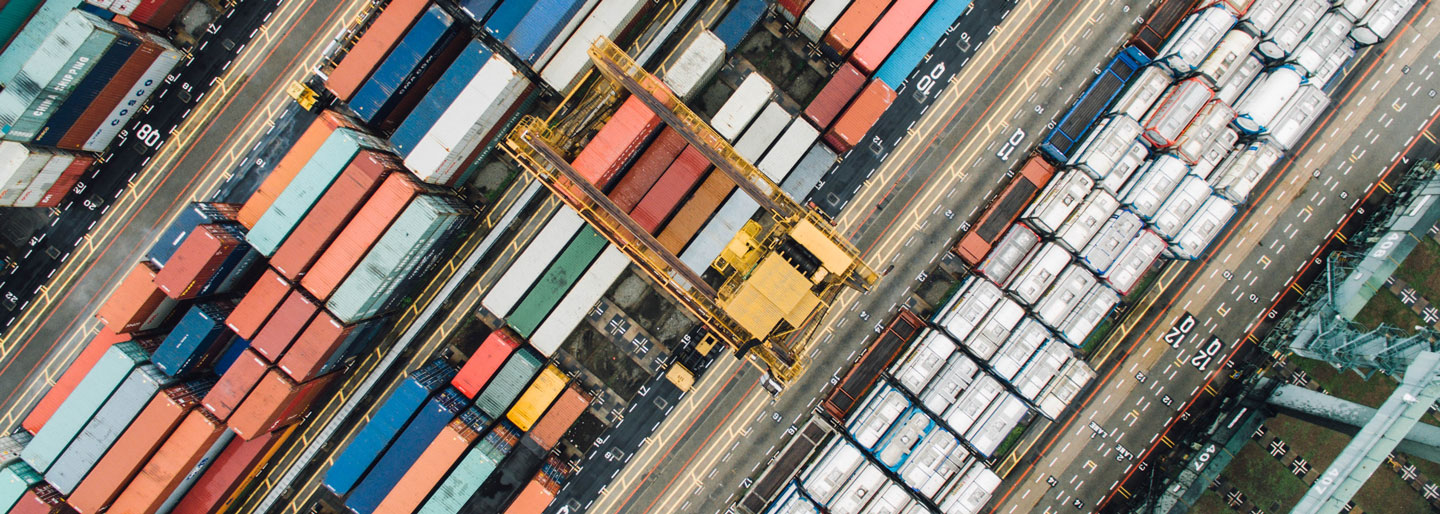Have you ever used an online freight forwarder? When booking transportation, you have a choice between making an online booking, for example here on Transporteca, or a traditional old-fashioned booking, by email or phone with a traditional freight forwarder. There are at least 7 differences to be aware of and take into consideration.
1. Choose an online freight forwarder to start the shipping process now
When using an online freight forwarder the shipping process starts immediately and the earlier you get the actual shipping process started the better. Usually, the process starts with communication and coordination between the shipper and the shipping agent at the origin. For this to happen, the sharing of contact and booking information is required.
In a traditional old-fashioned booking process, a sales representative or customer service agent at your freight forwarder must confirm your booking and write an email with your booking information to their overseas counterpart. The counterpart should then, in turn, contact the shipper. Alternatively, and even less favourable, the freight forwarder will inform you of the agent details, which you will need to pass to the shipper, so contact can be established.
When booking with an online freight forwarder, all contact details of shipper and forwarding agent at the origin, including name, phone number and emails, are immediately and automatically shared with all relevant parties. This would include all required booking information, such as warehouse address and cargo cut-off, enabling the shipping process to start right away.
What if the shipping process stops?
In the real world, sadly, occasionally it happens there is a weak link in the supply chain, where cargo, documents or information gets stuck. In the old-fashioned offline shipping process, someone else in the supply chain must raise a red flag, and get the issue address and the process going again. This would typically only happen when the transportation buyer (you) sends a request for an update, and often delay at this stage is unavoidable.

With an online freight forwarder, the shipping process, however, if a party in the supply chain does not execute their task on time since the technology has the timing of all parts of the shipping process embed, an alarm will automatically sound – both to the relevant party and to other stakeholders up and down the supply chain. Thereby, the risk of unidentified delay is mitigated. Of course, a delay can still occur, but in the online model, you know it and can act upon it.
2. What you see is what you get
WYSIWYG was a popular abbreviation in the 1980’s when the first word-processing programmes were developed with a graphical interface, where what you saw on the screen was also what would come out on paper – if printed.
In a traditional old-fashioned offline booking process, the sales representative controls the process, and more often than not, the service you book is aligned with this person’s incentives. In addition, offline conversations about requirements and service delivery are not always captured in the final service description, leaving room for interpretation and misunderstanding at the time of service delivery and, often, at the time of payment.
When booking transportation with an online freight forwarder, you can browse through services and check prices and transit times, and add insurance and other services if you require them – all at your own pace and at your convenience. Technology does not alter information or service scope, so when you find that door-to-door service, it is guaranteed that it is from door to door, without surprises. When you find a price, and pay online and up front, you receive the invoice immediately, thereby ensuring the actual price is what you see – the value of the quote and the invoice is always identical.
3. Customer service for all
Better technology yields reduced transactional costs for any freight forwarder. Most offline freight forwarders have, especially while margins are under pressure, launched initiatives to trim their customer base. The intention was to make sure investments were only made where financial returns are positive. With higher transactional costs, the result – regretfully – is that infrequent and relatively low-volume customers often receive limited or no service at all.

When effective technology and automation enable lower transactional costs, a broader segment of transportation buyers become financially viable to service. That is why, when buying transportation online, often you will experience a higher level of customer service and personal engagement. For online transportation services, it makes financial sense to give every customer a good experience – regardless of size.
4. Accurate and complete information
A massive success factor in international shipping is communication and effective and timely retrieval of required information. Old-fashioned offline freight forwarders often struggle with this, and as result, customers experience reactive communication, delays and uncertainties leading to frustration and often, additional costs.
With effective technology, an online freight forwarder ensures data structure and discipline across the supply chain. Accurate and correct data thereby is available when needed, offering both increased transparency and quick access to relevant information and communication.
When booking transportation online, you will therefor experience more time spent on actual customer service, and less time spent on finding information. Both you and the customer service team benefit from accurate and complete information that is quick and easy to retrieve.
5. Building the best network
Both online and old-fashioned offline freight forwarders are operating through a network of agents and overseas partners. The traditional forwarder is typically in a long-term relationship with a few agents or an established network, offering limited flexibility for change in the short term. For example, if a partner has been selected as handling agent across Far-East, changing to a new agent because of a service failure out of Hong Kong is not likely, if the service out of Mainland China is fine. This setup makes network optimization less effective, why at times the forwarder will need to decline bookings, or even agree to deliver the transportation, knowing that the service will suffer.

An online freight forwarder is not dependent on own networks and long-term agreements. By contrary, he/she is dependent on customer feedback, and free market mechanisms rather than regulating which services are available for which trades and transportation modes. The feedback transportation buyers provide on the service is received instantly and published for all future transportation buyers to use in their buying decision. If one service is not receiving satisfactory reviews, it will drop off the chart, making space for a better service.
That is why feedback is consistently being requested and taken extremely serious by online freight forwarders – they know they depend on it.
6. Less is more
When speaking or writing with an old-fashioned offline forwarder, you learn that every shipping service has countless configurations and services, to cover for every perceived need. The outcome, however, often results in unexpected surcharges, endless email communication and ambiguous data on shipping and delivery dates – resulting in frustration and costs for the transportation buyer.

For online transportation services, this had to be simplified. In fact, it has to be simplified to the extent that services can be presented in a single screen, so any transportation buyer will understand exactly what they will get without further elaboration via email or phone. In simplifying the services, not only is the scope ensured to cover what most transportation buyers need, but pricing becomes much less complicated, leading to the lower price of the final transportation solution.
When a freight forwarder no longer needs to price and mark up every element of a transportation service, but can rather calculate a price for a volume or a weight, for example from door-to-door, all included, everything becomes more effective. And effectiveness drives cost out of the system.
7. You matter
A few pioneers are spearheading online transportation booking and forwarding. The industry at large is in front of a massive shift, where transparency, simplicity and convenience become key decision parameters for transportation buyers.
As pioneers, every single engagement matters. Therefore, when you book shipping online, you and your shipment are important to us – and you will feel the difference.
We look forward to welcoming you to the group of innovative transportation buyers that book shipping online.